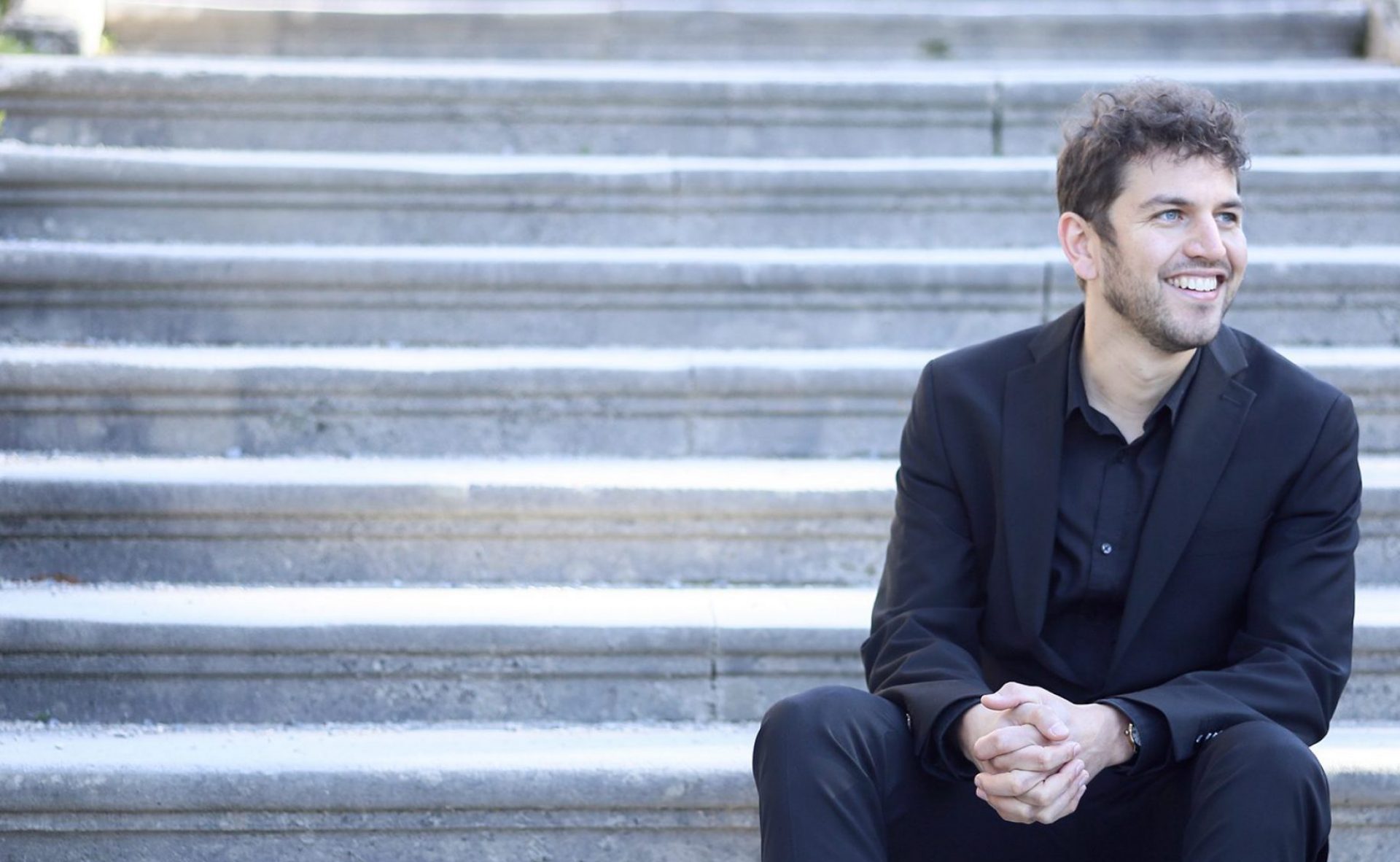He studied at Oxford University and the Guildhall School of Music and Drama, and began his career at Scottish Opera as the company’s first Emerging Artist Répétiteur. From 2014 to 2016 he was Solorepetitor and Kapellmeister at the Staatstheater in Nuremberg where he conducted opera, ballet, and musical theatre. In 2016 he returned to Scottish Opera as Chorus Master, Repetiteur, and Musical Director for Opera Highlights.
Jonathon is passionate about the training of young singers. He spent six years on the core Faculty of the Georg Solti Accademia, two years as the Artistic Director of the Scottish Opera Young Company and was Head of Music for the New Generation Festival in Florence. He is the Artistic Director of the Alvarez Young Artists Programme at Garsington Opera and works regularly as a visiting vocal coach in the major UK music colleges.
You can find the German language version of Jonathon’s interview here.
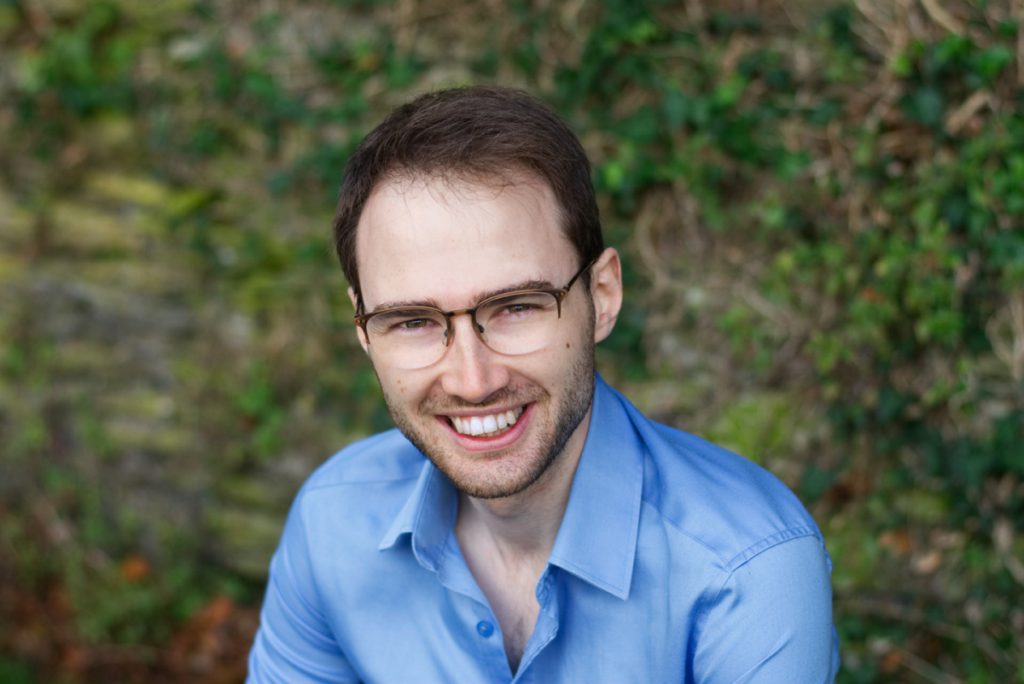
It’s my life’s goal to make wonderful music with nice people… I’m beginning to realise that actually being a balanced human being makes you a better artist.
What would get you on the dancefloor?
Anything by Queen!
If you could have a meal with any famous person in history, who would it be?
There are so many! Debussy. He’d be really opinionated about everything, so really interesting.
Favourite composer?
There are some I’d be more likely to take to a desert island than others. I would definitely take Mozart.
Can you describe your hot toddy (or other drink) in three words?
Hot ginger tea.
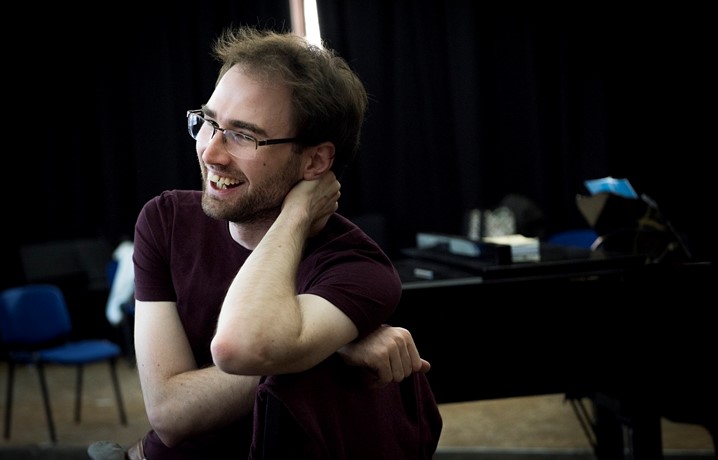
Your various roles in opera are quite broad, working as a conductor, chorus master and repetiteur. Can you tell me about the various roles you have.
My various roles are a result of clinically diagnosed indecision! Simply put, a repetiteur is a trained pianist who accompanies opera rehearsals and who generates the sound of an orchestra at a piano. However, they also understand singers, not just technically but also psychologically, and you can’t learn that from a book. One of the early strategies I decided on to understand singers was to marry one, like you did. So it’s my life study, even at home!
I spend September to March working for Scottish Opera as Chorus Master. Then from April-July I work for Garsington Opera as Head of Music. I try and have August off, and usually fail.
What does ‘Head of Music’ mean?
I’m responsible for overseeing the quality of the musical output at Garsington. That can mean anything from coaching a singer in one production, chorus mastering another, sitting and taking notes, conducting if somebody is indisposed; really whatever needs doing. It also involves future planning, casting, a lot of score preparation! We tend to cast 2-3 years ahead, and we artistically plan up to 4 years in advance.
Is there a specific path you need to go on in order to become a repetiteur?
Everybody has their own path and there are many different breeds of repetiteur. There are those who are highly trained accompanists who like the challenge of playing three hours of opera; there are ones who want to be conductors, who think of the orchestral big picture and how to achieve that, but maybe you wouldn’t find them playing song on the Wigmore Hall stage. There are ones who are excellent linguists who develop enough piano playing to be extremely useful in the coaching room; and there are ones who fall into it by accident by discovering they’re good at it. There’s no ‘one size fits all’, but I would say if there were to be a collective noun for a group of music staff, it would be a ‘reliance’.
You also worked in Nuremberg as a repetiteur. What was that like, and how did that differ from doing the same role in the UK?
In Nuremberg I was Solorepetitor und Kapellmeister1. My contract was a bit different – it just said ‘slave’! Slave to music! The role is exactly the same. I was principally a repetiteur, so I played for all sorts of productions, but I also worked as a Kapellmeister and took over Nachdirigaten – jumping into conduct a show – which I really enjoyed.
I think it’s proven itself to be a very useful way of developing oneself as a conductor. It does have limitations as you are somewhat shackled to the musical version of the person who conducted it before you. If the personnel in the orchestra are constantly changing it’s also hard. I remember sometimes feeling like I was just a signaller trying to bring in an aircraft, signalling ‘stop’ and ‘go’, ‘brass you’re behind’!
Looking back at that period now, I realise I basically became an enthusiastic human metronome, so the next part of my conducting development had to go beyond that!
Are there any things the UK can learn from the German system, or vice versa?
I think the UK could learn a lot from the structural funding and the governmental support of the arts in Germany, but that is very much linked to the history and the presence of a single theatre in every German town. The UK theatre infrastructure is not built like that.
The UK could learn from Germany’s arts educational policy. They are nurturing an audience who are interested in the product from a young age. I think there are huge failings in the UK education sector very early on with regards to music and theatre, which means we are less likely to see a group of 16 year-olds going out to watch La traviata or La Bohème – something which seemed fairly common in Nuremberg.
Another wonderful thing about working in Germany is that the singers come from all different parts of the world. The Brits are a little bit more insular. We like hiring British artists, and we’ve not helped ourselves with a little thing called ‘Brexit’. We’ve certainly cut off a cultural limb – pick any part of the body, but I think it’s probably our brain that we’ve cut off! That will force the UK opera scene to be even more insular, because of the practical problems with co-producing, and hiring singers. It is a bit of a tragedy for our art form, but we’ll work around it!
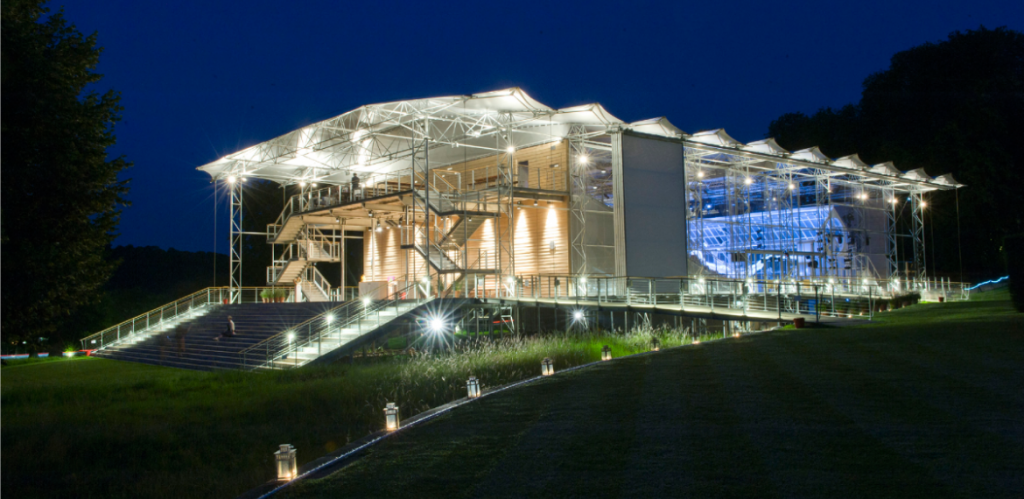
I think it’s becoming more and more important for young singers training at conservatoire to be self-motivated and to quickly identify who they are as artists. They need to be strong enough to develop their own sense of artistic identity but open enough to remain receptive to feedback and criticism.
You mentioned earlier your work with Scottish Opera. How did that start?
I trained at Guildhall and in the year I graduated, Scottish Opera started up a scheme for a young repetiteur, to add to the one they already had for emerging singers. I got very lucky; the audition went very well and I got my first job.
I look back at that year and realise just how much I didn’t know, which is slightly terrifying. I remember studying Die Zauberflöte for the first time and thinking, ‘it’s a bit tricky’, and now I’m learning Rosenkavalier, which makes Die Zauberflöte look like a walk in the park. But we all started somewhere!
You’ve also worked for the Solti Accademia for a number of years. How does that fit in with everything else you do, and what does it offer for the singers who take part in it?
There are a plethora of programmes for young singers in the summer. I’m biased, but I think the Solti Accademia is different on three levels. Firstly, it’s not a pay-to-sing programme. It’s auditioned and then fully funded. Secondly, the performances at the end of the course are not really what the course is about. Solti singers participate in three weeks of closed-door masterclasses and I think that’s one of the things that sets it apart.
I find public masterclasses problematic, as so much of learning to sing is quite a private and highly personal process. Thirdly, the course focuses solely on bel canto, and our definition of that is Donizetti onwards: the great Italian bel canto and then verismo opera to Puccini. If you can sing a Bellini aria well you can basically sing anything – there is nowhere to hide in bel canto!
You’ve worked for Garsington Opera for two years now. What is it like to work there, and what have you learnt?
Garsington is one of the many summer opera festivals that takes place in the UK. They’re usually based in wonderful country houses with lovely grounds. We have a purpose-built pavilion theatre on the Wormsley estate in Buckinghamshire; it’s a beautiful light open space, and it feels like you’re performing outside. We do four operas a year. In addition to my role as Head of Music, I also look after our Young Artists who form the Garsington Opera Chorus.
All of our young artists are considered for covers, and we cast the chorus through the cover process. They get the benefit of shadowing the principals, getting their own cover run, and sometimes a school performance with the orchestra. Normally we have between 30-40 young artists working with us. I’m really passionate about that next step, because you can train in a conservatoire, but after 8 years of study you just have to get out there and do it.
Is that a stage of training you feel is missing in the UK?
I think we’re quite good at offering that step actually. In Germany there are opera studios which function in the same way, but they’re generally for a smaller number of people and, in the case of the bigger houses, they are for singers who are further down the road. I think the UK provides useful additional training because of the freelance nature of the summer festivals.
I think it’s becoming more and more important for young singers training at conservatoire to be self-motivated and to quickly identify who they are as artists. They need to be strong enough to develop their own sense of artistic identity but open enough to remain receptive to feedback and criticism. Conservatoires tend to nurture an environment where everybody thinks they are going to be the next best soloist, but once a singer graduates they get a harsh reality check, and very few of them actually jump to the next level.
And so in the words of Flanders and Swann part of my job with the Young Artists is to ‘strip the veneer’ off our industry and to tell them how hard this business really is! I mean that in the nicest possible way, because if you love it enough that you’re happy just to sing at the back of a chorus and do some very small work for absolutely no pay until you’re noticed, then great. If you’re not, then become an accountant and do my tax return, because you’ll make a lot more money!
Do you think that the music colleges need to change? Or do there need to be more people who help with the next step more effectively?
The colleges have a structural and financial dilemma. Although they receive government subsidy and private sponsorship they still have to balance their books. So I do sometimes worry that the admissions process is now more about quantity than quality.
I’m generalizing here, because they still deliver a very high level of teaching and produce some fantastic artists, but right now it is impossible for every single person who studies singing at music college to have a career in this industry. We get over 500 applications each year for our 30 Young Artist places at Garsington and the majority are from UK trained singers. That’s saturation beyond what the industry itself can sustain.
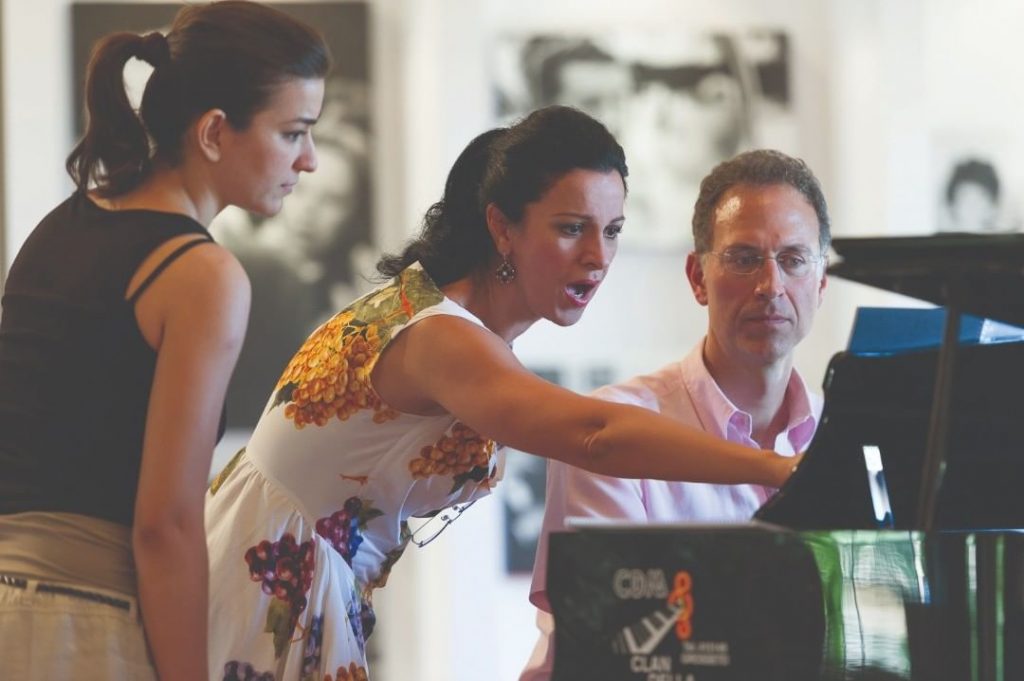
We talked earlier about your various roles. How do you personally see the roles that you do interacting, and do you have a particular direction you want to go into eventually?
I think the coronavirus has changed the answer to that question, because it’s given us all pause for thought to recalibrate what’s important in life. I think I’m very clear that I’m just grateful to be working in this business at all, because it’s hugely competitive and there are very few people who end up with a long career in it.
It’s my life’s goal to make wonderful music with nice people; I do think the business is changing for the better in that regard and that there is far less room for difficult or egotistical artists. We can thank the #MeToo movement for a lot of that.
However, there is still a lot more to be done in terms of proper racial and gender equality in the opera world. I’ve been very lucky to work with several highly-talented female conductors and many dreadful male conductors, so I will very happily see that gender bias continue to change! I am also pleased to see more and more talented BAME singers coming into our industry.
An earlier version of me toyed with the idea of being a freelance conductor. I think that is an exciting career but also precarious. I love conducting which I do as part of my job, and I hope that it will evolve naturally to the point where I will be conducting my own shows, but I do not need to pursue that sole goal to the detriment of everything else.
I’m beginning to realise that actually being a balanced human being makes you a better artist, but that’s because I’ve worked myself to the bone for ten years and have started to regret a few decisions!
What advice would you have for people wanting to be in the roles you’re in?
I would say having good keyboard skills is essential, where you can play and at least 50% of your brain is free for other stuff. I remember when I started I found dealing with different languages and vocal lines made me so tired, because there was so much information to take in. The more automated piano playing can become, the more brain space you have to deal with the other information, such as linguistics, dramaturgy, what’s going on in the rehearsal room, and the conductor.
The second bit of advice would be to improve your languages – moving to Germany and working there was the best thing I ever did, and then working in Italy too, because it’s a European art form. You don’t have to be translating the works of Tolstoy, but you do have to have an inquisitiveness for languages.
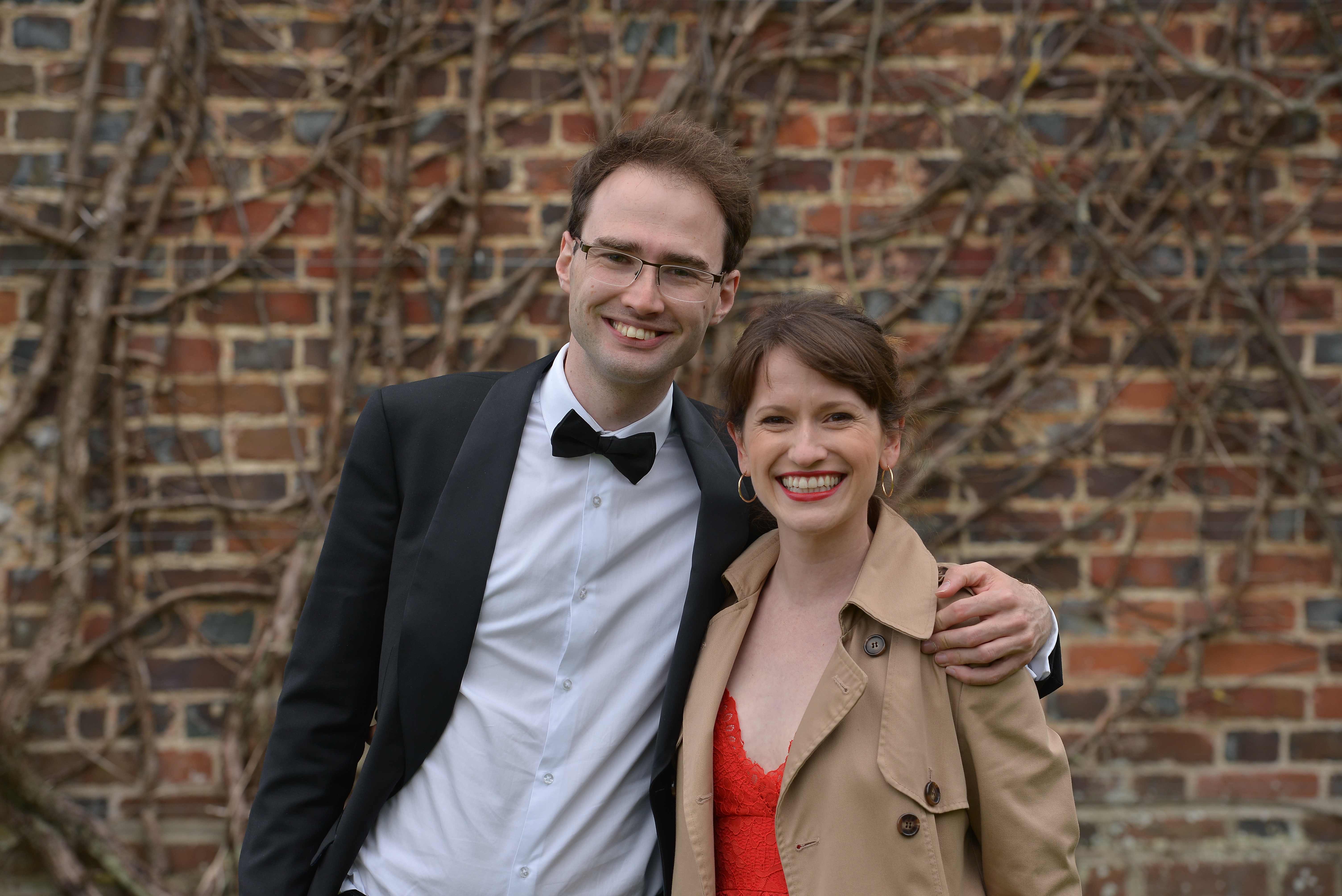
Artistry comes from ideas. Every singer should be asking: ‘what do I think about this music’, ‘how do I want my listener to feel’ and ‘how do I want to achieve that’.
What do you look for when you’re auditioning singers?
There’s an undeniable hit list of things you need. You need someone who’s technically sorted, but it’s amazing how rarely that actually happens, and as a chorus master I have to mention tuning. Not enough singers are honest with themselves and their teachers and coaches about whether they are in tune all of the time. It’s a constant problem and it changes with singers’ bodies. But part of their job is to learn how to best manage that, regardless of whether you are having a good or bad day!
Then you need a communicative ability, and a collegiate ability to create the right energy in the rehearsal room. The best auditions are where you look up and you’re just mesmerised by what somebody is doing because of their artistry. Artistry comes from ideas. Every singer should be asking: ‘what do I think about this music’, ‘how do I want my listener to feel’ and ‘how do I want to achieve that’. Being unequivocally clear in your own mind about that stands out in an audition. You know when it’s happening and when it’s not happening.
I think part of the problem with being a young singer is you’re like a tennis ball in a doubles contest. You’re batted from four different people: coach, singing teacher, professor, colleague, all giving their opinions on what you should be doing. It’s the singer’s job to distil that information and decide who they actually are, and it’s often that last stage which is missing.
My close colleague at Garsington says that eventually ‘singers have to stop trying to please everybody, because you’re never going to be to everybody’s taste.’ As soon as you accept that and you just be your own artist, I think you can be a lot more self-confident.
All too often in contemporary work there is poor dramaturgy, baffling stories, musical ideas that are good but not properly theatrically developed, first acts that don’t lead to interesting second acts, or libretti that are too ‘complete’.
Do you have a favourite repertoire, perhaps something you haven’t done yet?
I like working on a variety of repertoire because I have a very short attention span. I really admire my colleagues who work in the West End on a show for 2 years, because it requires a certain level of mental fortitude that I just don’t have. I am a huge fan of Verdi – his operas are so dramatically tight and carefully thought out. The characters are so vivid, everything is so real, and the stories usually immediately compelling.
I have an issue with contemporary operas that are beautiful musically but dramaturgically inconsistent. I think it’s something that’s really relevant to the 21st century audience who are so used to TV / cinema culture. A piece like Rigoletto is like watching a thriller when it’s done well.
But all too often in contemporary work there is poor dramaturgy, baffling stories, musical ideas that are good but not properly theatrically developed, first acts that don’t lead to interesting second acts, or libretti that are too ‘complete’. A perfect libretto is an incomplete entity, because it is made perfect by being composed. Think Britten and all the unanswered questions in his libretti…
I also think we are far too precious about the score as a historical artefact. The reality is that if the composers were still alive, they’d still be tinkering. The best operas are the ones that have been through that tinkering process through a composer’s lifetime.
Why do we need opera at all? What’s opera going to look like in 100 years time?
A highly relevant question in a time where we have been unable to make live music owing to Covid-19. All of us have realized very quickly that rehearsals on Zoom and archived recordings are not the same as live performances . So I think the answer is that our ability as humans to collaborate artistically and the social satisfaction we get from being together and watching a live piece of theatre is very important.
We have an innate hunger for storytelling, and to be taken out of ourselves by living through someone else’s story. Those of us who have experienced a transcendental night at the opera and who are devotees might argue that it truly is the greatest artform. But I know that my nextdoor neighbour, who’s tuning his motorbike right now while listening to Motorhead, might say differently! Everyone has their own music which makes them feel fulfilled and complete. That can be Mozart or Meatloaf.
We have an innate hunger for storytelling, and to be taken out of ourselves by living through someone else’s story.
Do you think opera will have to change in the future?
Opera is a bit of a museum. There are certain pieces that are in the canon because they are dramatically compelling, musically ravishing and worth hearing time and time again. But it’s the responsibility of our generation to keep writing material of that level, because otherwise we’re always going to have the historical burden of doing pieces by dead people.
My personal hope is that contemporary opera will return to a slightly simpler understanding of the artform: if the story isn’t good and the music doesn’t serve the story, then the opera won’t survive the test of time.
I also hope that after the Covid-19 crisis the industry in the UK will be better state-funded and supported. We’ll be down the pecking order, for sure, but I hope there’ll be an acknowledgement that the freedom to go and experience a live performance is one of the greatest gifts that we have living in a free society. So for that reason, and the stories, people will keep coming.
Thank you to Jonathon for sharing his thoughts on the opera process and how his vital roles help to make opera productions come to life. You can learn more about Jonathon through his website, and feel free to leave your thoughts in the comments below.
Notes and Links
- A Kapellmeister is a conductor who usually has the second or third choice of performances to conduct after the Generalmusikdirektor. Often there is a first and second Kapellmeister in a theatre.
- You can learn more about Scottish Opera, Scotland’s national opera company, through their website here.
- Find out more about Garsington Opera, including all the information you need on how to visit, at their website here.
- The Solti Accademia runs two courses every year, one for repetiteurs in Venice, and one for singers in the Tuscan seaside town of Castiglione della Pescaia. It offers an incredibly high standard of teaching to those selected to take part.
